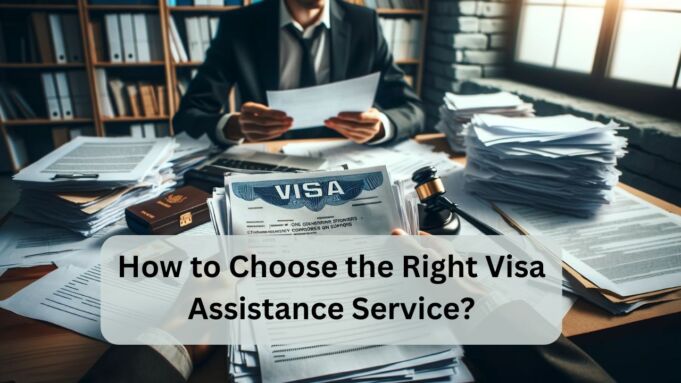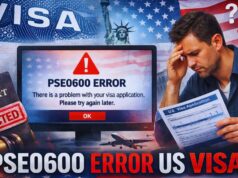Traveling abroad for work, study, or leisure is an enriching experience, but it often comes with the challenge of obtaining the necessary visa. Navigating the complex world of visa applications can be daunting, which is why it’s essential to have a solid understanding of the process and seek assistance when needed.
This comprehensive guide aims to provide valuable insights and practical tips for obtaining visas, ensuring a smooth and stress-free international travel experience.
How to Choose the Right Visa Assistance Service?
Selecting a reputable visa assistance provider is crucial. Look for services with good reviews, established credibility, and a track record of success. Be wary of any service that promises guaranteed outcomes or charges unreasonably low fees.
With years of demonstrated experience in the industry and a commitment to excellent customer service, Arcticket delivers the utmost professionalism. They are equipped to handle a variety of situations, including complex cases. Through dedication, strong determination, and extensive experience in visa processing, Arcticket has successfully assisted many clients, including some considered to be challenging or nearly impossible cases.
Their company serves a diverse customer base, having had the privilege of working with global companies from the medical, information technology (IT), and recruitment industries. They have also provided services to a wide range of clients, including families seeking immigration, medical practitioners preparing for PLAB/USMLE exams, lawyers, and celebrities.
In addition to visa assistance services, Arcticket also offers flight ticketing, hotel booking, travel insurance, tour packages, document translation, authentication, and PSA document servicing through their sister company.
What are the Different Types of Visas Available for International Travel?
Visas can be categorized based on the purpose of travel, and each type has its specific requirements and conditions:
- Tourist Visas: Generally issued for travel that involves sightseeing, visiting family or friends, or other personal activities. Tourist visas are usually short-term and may restrict activities such as employment.
- Business Visas: Intended for individuals engaging in business activities like meetings, conferences, or networking, but not for taking up employment in the destination country.
- Work Visas: Required for those who intend to engage in gainful employment in another country. These often require the sponsorship of an employer in the destination country and can vary greatly in terms of documentation and prerequisites.
- Student Visas: Issued to students enrolled in a course of study in another country. These visas require proof of admission from a recognized educational institution and evidence of financial support.
- Transit Visas: These are needed for travelers who are passing through a country en route to their final destination and may be required even if not leaving the airport.
The Visa Application Process

Applying for a visa typically involves several steps, which can vary by country but generally include:
- Document Preparation: Gathering all necessary documents such as a valid passport, photographs, travel itinerary, proof of financial means, and sometimes a letter of invitation.
- Application Submission: Completing the application form, which may be available online or require submission at a consulate or embassy.
- Interview: Some visas may require a personal interview at the consulate or embassy.
How Visa Assistance Services Can Help?
Visa assistance services can simplify these steps by:
- Helping fill out the application correctly.
- Scheduling appointments.
- Checking documents to ensure they meet the specific requirements of the visa.
- These services are particularly useful for those who are unsure of the visa process or who need a visa on a tight timeline.
How do Visa Requirements Vary Based on Destination Countries?
Visa requirements can vary significantly depending on the destination country, reflecting differences in each nation’s immigration policies, security concerns, and bilateral agreements. Some countries offer visa-free entry or visa-on-arrival to citizens of certain nations to promote tourism and business, while others require all foreign visitors to obtain a visa before arrival to control or monitor foreign entry more strictly.
The type of visa needed can also differ based on the purpose of the visit—whether for tourism, business, study, or work—and the expected duration of stay. Requirements for obtaining a visa can include proving financial sufficiency, having no criminal record, and providing biometric data.
Additionally, countries might impose extra stipulations based on current political relations, security scenarios, or health crises, such as requiring vaccinations or enforcing quarantine periods. Thus, travelers must consult the specific visa policies of their destination countries well in advance of their travel dates to ensure compliance and avoid entry issues.
Advantages of Enlisting the Help of Visa Agencies or Consultants
Enlisting the help of visa agencies or consultants offers several significant advantages, particularly for those navigating the complex and often daunting world of international travel documentation. Firstly, visa consultants are well-versed in the latest regulations and requirements, ensuring applications are up-to-date and correctly filled out, which greatly reduces the likelihood of rejection due to errors or omissions.
They also save applicants valuable time and effort by handling administrative tasks, such as scheduling appointments and organizing the necessary paperwork. Furthermore, their expertise and insider knowledge can expedite the process, especially for urgent or complicated visa applications.
Consultants often offer personalized guidance tailored to an individual’s specific circumstances, enhancing the overall chances of a successful application. This professional assistance can be particularly beneficial for those dealing with non-standard situations such as work visas, family immigration, or applications involving countries with stringent entry requirements.
Special Considerations and Tips
If your visa application is denied, it’s important to understand the reasons for rejection, which can often be addressed in a subsequent application. Additionally, when traveling with family or applying for long-term or multi-country visas, the complexity increases, often necessitating professional advice.
Conclusion
Navigating the intricacies of visa applications requires thorough research, careful preparation, and sometimes professional assistance. By understanding visa requirements, diligently following the application process, and seeking reliable assistance when needed, travelers can enhance their chances of obtaining the necessary visas for international travel. With the right knowledge and support, the journey towards exploring new destinations can be made significantly smoother and more enjoyable.














